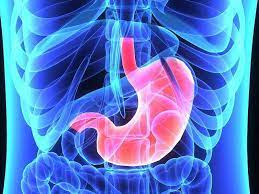Definition
Melena is a symptom characterized by the passage of black stool, typically indicative of bleeding in the upper digestive tract. The upper limit of this bleeding is often defined by the treitz ligament tissue in the small intestine. While melena is a common cause of black stool, it's essential to note that black stool can also result from the consumption of dark-colored foods such as licorice, blueberries, blood sausages, or medications containing iron, activated carbon, or bismuth. Additionally, certain fruits and red-dyed foods can give stool a dark red appearance. To differentiate melena from other causes of dark stool, chemical tests are often employed.
Bleeding leading to melena generally occurs in the esophagus and stomach and may present with additional symptoms such as blood vomiting, known as hematemesis.
Causes
Melena specifically refers to black stool caused by bleeding in the upper digestive tract, which includes the mouth, esophagus, stomach, and the initial part of the duodenum. The dark color of the blood results from a chemical reaction during its passage through the digestive tract.
Several disorders can lead to melena, including:
- Peptic Ulcer: A common cause, characterized by ulcers in the stomach and duodenum.
- Abnormal Blood Vessel Structure: Conditions affecting the blood vessels in the digestive tract.
- Mallory-Weiss Tear: Tears in the esophagus caused by forceful vomiting.
- Gastritis: Inflammation of the stomach lining.
- Trauma or Foreign Objects: Injuries or the presence of foreign objects in the digestive tract.
- Varices: Widening of veins in the esophagus and stomach, often associated with liver cirrhosis.
- Upper Digestive Tract Cancers: Cancers occurring in the esophagus, stomach, and duodenum.
Risk factor
Risk factors for melena include various conditions that can affect the upper digestive tract. These factors may increase the likelihood of experiencing upper digestive tract bleeding. Some of the significant risk factors include:
- GERD (Gastroesophageal Reflux Disease) is a condition that causes stomach contents to backflow into the esophagus.
- Smoking Habit
- Excessive Painkiller and Steroid Usage
- Excessive Alcohol Consumption: Heavy alcohol consumption can lead to liver disease, with symptoms that may include bleeding in the digestive tract.
- Liver Disease Worsening: Progressive liver disease can result in vein blockage and the widening of veins in the esophagus (varices). These varices are prone to bursting or leaking blood, leading to bleeding in the digestive tract.
These risk factors contribute to the development of conditions that, when exacerbated, can cause upper digestive tract bleeding and, subsequently, melena.
Symptoms
Melena is indeed a symptom, not a disease, and its presentation can vary depending on the underlying condition. When accompanied by specific diseases, melena may be associated with various symptoms, including:
- Blood Vomit: This can manifest as fresh blood or brownish in color.
- Jaundice: Yellowing of the sclera (the white part of the eye) or skin.
- Abdominal Pain: Particularly in the middle-upper part (epigastrium), often experienced before eating or when hungry.
- Nausea: A feeling of discomfort or the urge to vomit.
- Acid Taste in Mouth: A sour or acidic taste.
- Bloating: Feeling of fullness or tightness in the abdomen.
- Burning Sensation in Chest: Similar to heartburn or acid reflux.
Diagnosis
Melena is a specific symptom of upper digestive tract bleeding, but it does not rule out the possibility of lower digestive tract bleeding. Various examinations are conducted to determine the underlying condition causing melena or to identify bleeding in the digestive tract as a whole.
Direct examinations aim to detect emergency signs such as lowered blood pressure accompanied by an increased pulse rate, lack of urination over a significant period, and decreased consciousness. Abdominal examinations are also performed to assess the presence of pain or abnormalities. A rectal touch or digital rectal examination may be conducted to exclude differential diagnoses in the lower digestive tract.
Laboratory tests include a complete blood test, blood chemistry (covering blood sugar, electrolytes, cholesterol, liver enzymes, and blood clotting factors), and blood typing. If significant blood deficiency is detected, blood typing and crossmatching are performed for potential blood transfusion. Stool examinations check for the presence of blood, and bacterial culture can help determine the cause of bleeding. A urea breath test can be conducted to detect stomach ulcers caused by Helicobacter pylori bacteria.
Imaging examinations, typically performed in central or well-equipped hospitals, involve procedures such as esophagogastroduodenoscopy (EGD) or colonoscopy. EGD, with a camera-tipped tube inserted through the mouth and colonoscopy, inserted through the anus, can help locate the source of bleeding and facilitate interventions to stop the bleeding. These comprehensive examinations are crucial for accurate diagnosis and appropriate management of melena cases.
Management
The management of melena depends on its severity and the underlying cause. In cases where the patient presents in shock, characterized by low blood pressure, increased heart rate, reduced urination, or decreased consciousness, the primary focus is on addressing the shock itself. Shock represents the failure of blood circulation to supply oxygen to body tissues. Management involves urgent measures such as intravenous (IV) placement, fluid resuscitation, medication administration to stimulate the heart and blood vessels, and blood transfusion if necessary.
For stable patients, the management primarily centers on stopping the bleeding. If Helicobacter pylori infection is identified as the cause, medications to reduce stomach acid and antibiotics may be prescribed. In cases where bleeding is attributed to esophageal varices or the swelling of blood vessels, endoscopy or a tube inserted through the mouth may be used. The bleeding site can be clotted, clamped, or injected to reduce blood flow in that area. Additionally, blood vessel clipping may be performed on specific dilated blood vessels to stop blood flow and induce cell death in the blood vessel.
Complications
Complications of melena are closely linked to the underlying cause of the bleeding, but the bleeding itself can lead to severe issues. This includes the risk of shock, where blood circulation fails to supply oxygen to tissues, potentially resulting in a life-threatening emergency. Persistent or significant bleeding may cause anemia Excessive blood loss can lead to hypovolemia, reducing circulating blood volume and increasing the risk of shock. In cases with unknown sources of bleeding, complications can persist. If melena is not promptly and effectively managed, it can lead to life-threatening complications and, in extreme cases, death.
Prevention
Preventing melena involves addressing conditions that can lead to upper digestive tract bleeding. One preventive measure is reducing the consumption of painkillers, especially without a prescription, as these medications may diminish stomach protection and increase the risk of stomach wounds due to elevated stomach acid. Additionally, limiting or abstaining from alcohol intake is advised. Quitting smoking is recommended, particularly for individuals who smoke. For those with gastroesophageal reflux disease (GERD), consulting with a doctor for appropriate therapy can also contribute to prevention efforts.
When to see a doctor?
If you experience symptoms such as black stool accompanied by upper-middle abdominal pain (epigastrium), jaundice (yellowing of the eyes and skin), or blood vomit, it is crucial to seek immediate attention at the nearest emergency unit. While melena and upper digestive tract bleeding can be effectively treated, ignoring these symptoms can lead to complications such as insufficient blood supply, shock, and even death. The underlying cause of melena often requires specialized attention and supervision from a doctor. Therefore, even if melena occurs without other symptoms, it is recommended to consult with a doctor promptly to manage the condition and ensure appropriate care.
- dr Hanifa Rahma
Black or tarry stools: MedlinePlus Medical Encyclopedia. (2020). Retrieved 24 January 2022, from https://medlineplus.gov/ency/article/003130.htm
Gastrointestinal bleeding - Symptoms and causes. (2020). Retrieved 24 January 2022, from https://www.mayoclinic.org/diseases-conditions/gastrointestinal-bleeding/symptoms-causes/syc-20372729
Gotter, A., & Sethi, S. (2018). Hematochezia vs Melena: Symptoms, Causes, Diagnosis, Treatment. Retrieved 24 January 2022, from https://www.healthline.com/health/hematochezia-vs-melena











